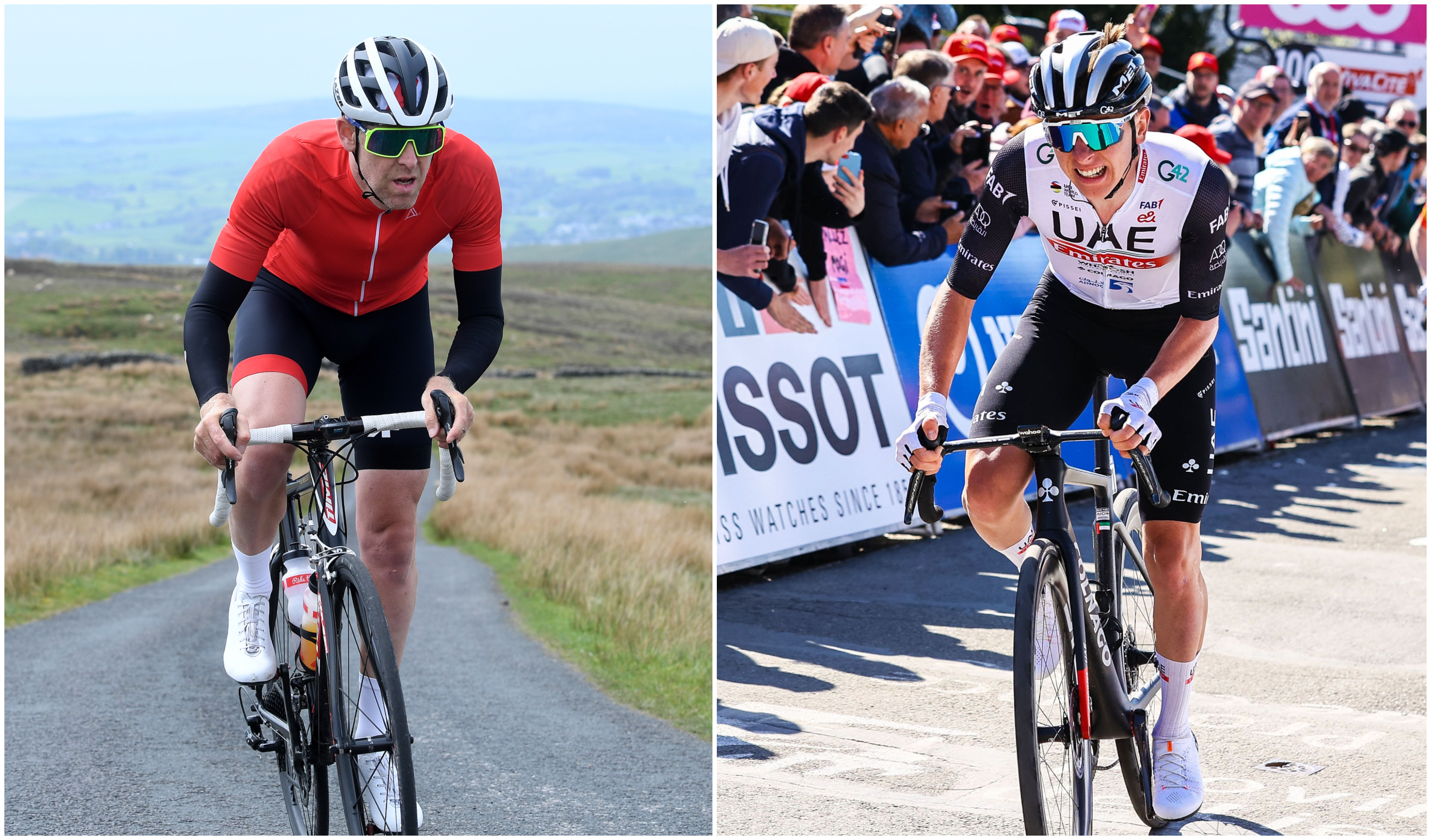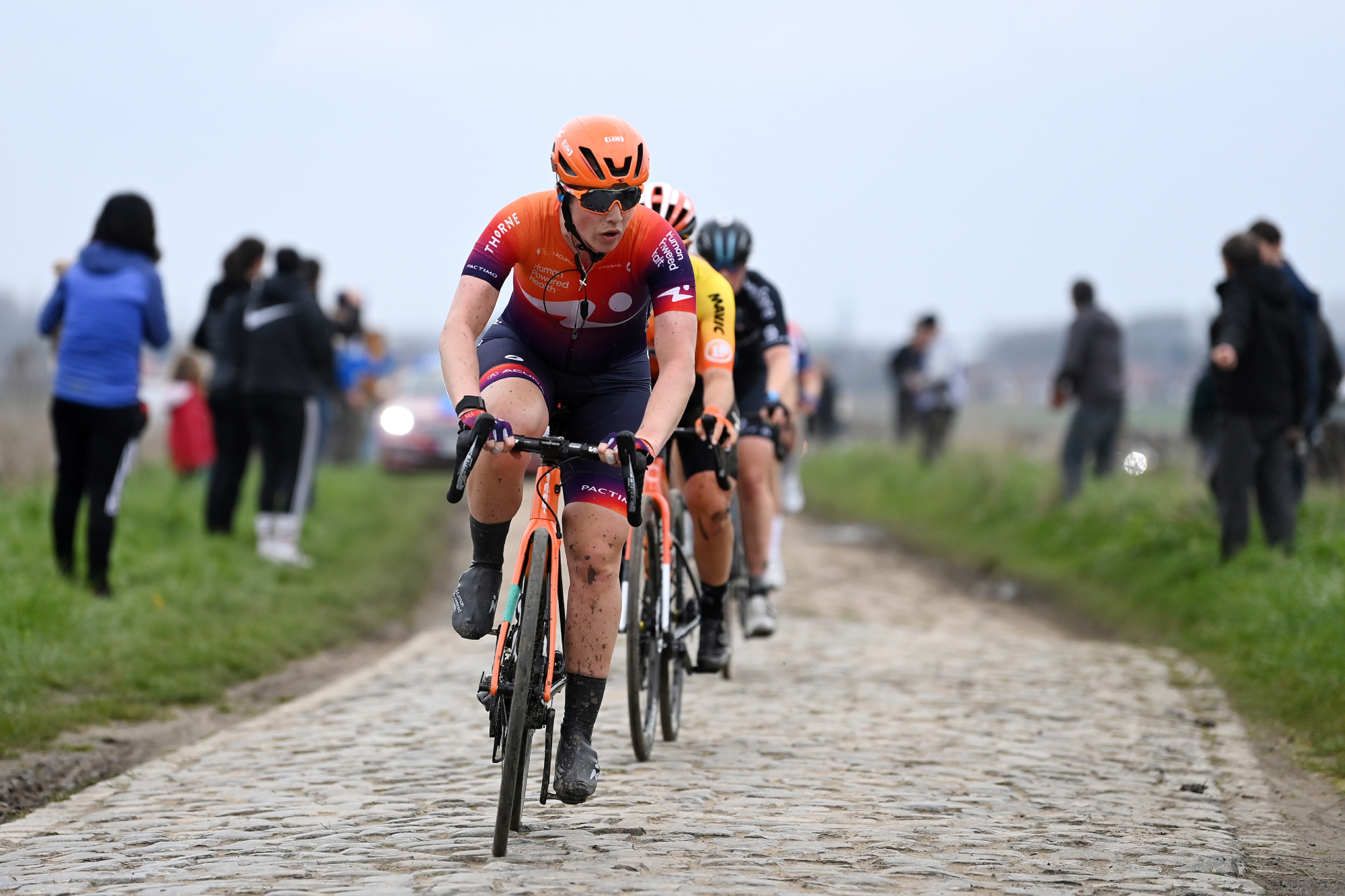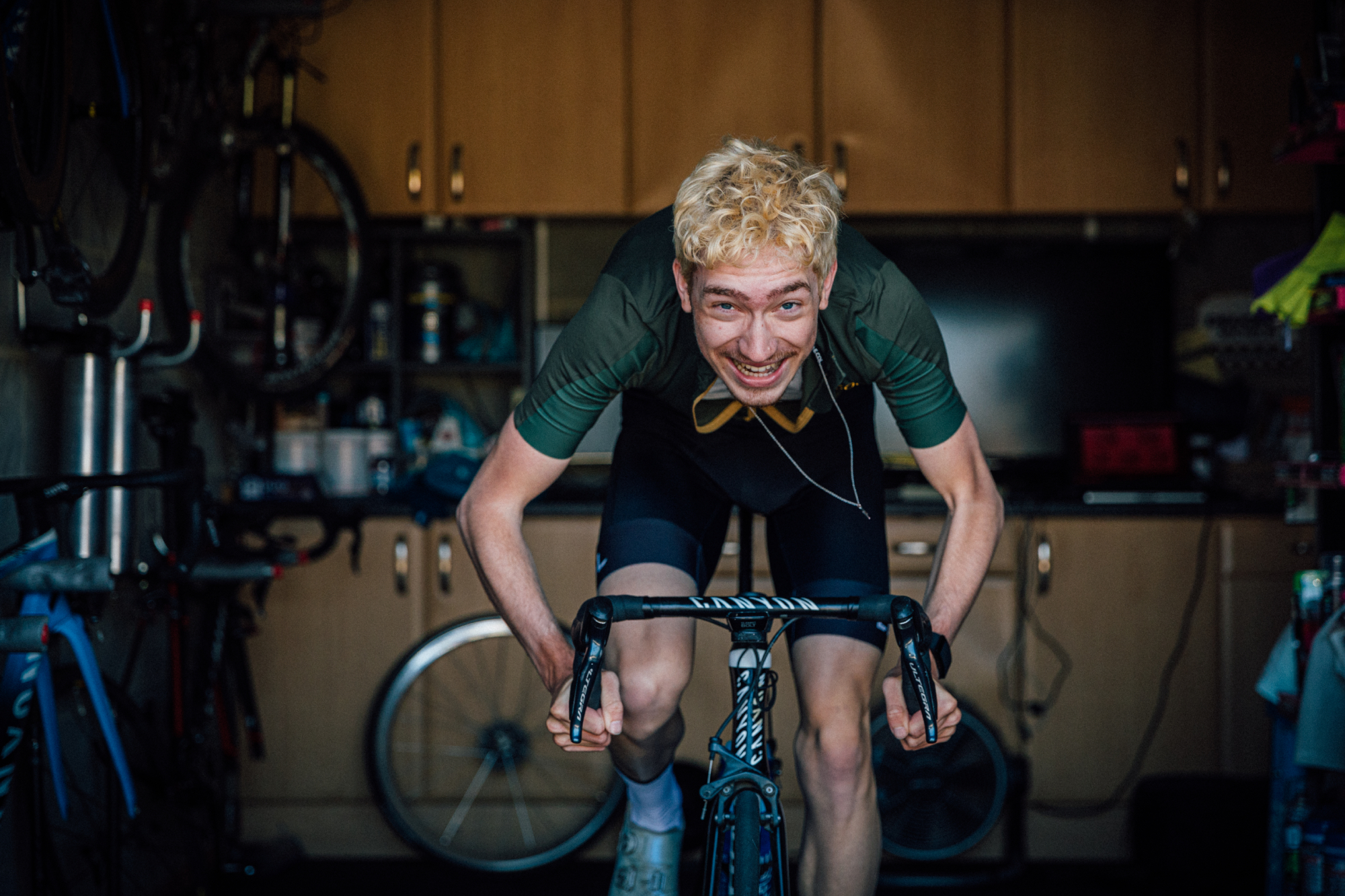Seven ways to develop a ‘pro mindset’ and become a better cyclist
Pro cyclists don’t just have different genes from the rest of us, their minds work differently too. Sports psychologist Josephine Perry highlights the mental traits inseparable from success


The latest race content, interviews, features, reviews and expert buying guides, direct to your inbox!
You are now subscribed
Your newsletter sign-up was successful
When in 2009 UK Sport commissioned the Great British Medallists project team at Bangor University to explore what makes multiple medal winners different from the rest of us, their goal was to help identify the stars of the future. The researchers found that genes play a huge role in sporting potential (up to 80%) – no great surprise there. They also found a number of serendipitous advantages such as being born early in the school year, having a trauma-free childhood and growing up close to sporting facilities. By the time we’re fully grown, the die is cast. However, there is one thing we can change to become more like sport’s top performers, and that’s our minds.
Aside from the accidents of birth listed above, there are myriad psychological differences between pro athletes and the rest of us. These mental traits, studied and taught by sports psychologists like me, come naturally to many pros, but they can also be consciously nurtured. So even if you didn’t win the genetic jackpot, you can still expand your potential by learning to think like a pro. And here they are – seven ways to develop a pro mindset…
1. Keep the inner flame burning
All cyclists need to be highly motivated, but once you step up to pro level, the type of motivation changes. To be able to stick with a sport and not get burnt out, it is important to have intrinsic (or internal) motivation – a deep inner love for the physical act of riding your bike. The PBs, Strava kudos, and metrics showing improved fitness are great, but what comes first is the inner satisfaction.
Intrinsic motivation comes from three pillars: a sense of belonging, mastery and autonomy. Amateurs can develop these fairly easily but they are harder to maintain once you step up the ranks. A pro rider might feel they belong in the team and they’ll definitely have mastery, but if they have to obey the team coach, and be told where, when and how to train and race, their autonomy disappears. This means they need a different motivational fuel, an extrinsic one, focused more on external rewards such as meeting contractual responsibilities, getting decent results and thereby earning their paycheck. This is harder to maintain, brings more pressure and can, at times, diminish the simple joy of riding.
Think like a pro: However far you progress in cycling, aim to maintain your intrinsic motivation. Focus on finding a team, club or group in which you feel comfortable, monitoring your skills and successes and ensuring what you do on the bike feels like your own choice.
2. Leave no stone unturned

Being paid and supported within a professional setup doesn’t just influence motivation but also funds the extras that are needed to leave no stone unturned. At a national level, British Cycling gets nearly £37m from UK Sport to support elite cycling and provide Athlete Performance Awards (the sums paid directly to athletes to cover their living and sporting costs). Within trade teams, the minimum wage for men in the WorldTour is £50,000 rising to top earning Tour de France winner Tadej Pogačar’s (reported) £5m last year. For women, the minimum wage has just risen to £28,000. This means the money, for men at least, is in place to pay for those extras that make the difference.
Coach Matt Bottrill sees professionals investing in a lot more than just coaching. “They are looking at nutrition for cycling, physiology, strength and conditioning, and the mental aspects. They want to do everything to help extract every drop of performance gain from their key sessions.”
The latest race content, interviews, features, reviews and expert buying guides, direct to your inbox!
Twenty-six-year-old Marjolein van’t Geloof was Dutch amateur champion before turning pro in 2018. She has just stepped up to the WorldTour, riding for Human Powered Health. “As a pro, your body is your work tool so you have to look after it. You get more aware of this when it pays the bills. With Covid and flu going around, if I wasn’t a pro cyclist, I wouldn’t be wearing a mask everywhere but I have to because if we get sick we can’t do our races. It’s those little things you have to think about.”
Think like a pro: Research your favourite pro riders and get curious about what they do off the bike to support their riding. Where possible, try adding those techniques to your own regime and monitor the effects.
3. Harness those butterflies
One of the differences that comes from leaving no stone unturned is that pro riders draw on a broader range of mental skills than amateurs. Strategies including goal-setting, anxiety control, imagery and self-talk are taught and used in order to improve performance. Researchers at Cardiff University identified that higher-performing athletes learn to interpret symptoms of anxiety as signifying challenge rather than threat. This significantly enhances performance potential.
Think like a pro: When you feel anxious in a cycling context (butterflies in tummy, elevated heart rate, tense muscles, etc), tell yourself these are the signs of adrenaline doing its job, priming you to perform at your best.
4. Focus and filter

The fourth difference is that pros can’t be ‘magpies’, a phrase that we use in sports psychology to describe the way some athletes constantly look for the next shiny thing to help them improve. Often these shiny things turn out to be ineffective fads. Pro riders know that it’s consistency, focus and an ability to filter out distractions that truly yields results.
“The pros still have some of the same insecurities but they are better at not letting them, and the possible quick fixes, get in the way,” says coach James Spragg, “and that way, they remain consistent.”
Mareille Meijering (Zaff Cycling) is in her second year in the pro peloton after many years riding as an amateur. The 27-year-old remembers calling off training in her amateur days just because the weather was bad. “That can no longer happen. As a professional, you know you will get better from it, so you do it whatever the conditions. You don’t need that little extra push – you just say I’m going to do this right now because it’s going to make me better.”
Think like a pro: Find a cycling coach whom you can really trust and engage with openly – someone whose advice you’re glad to follow. Letting this person guide your choices will allow you to relax and focus on what really matters.
5. Train smarter (not longer)
One of the persistent myths about training is that you need to do 10,000 hours (or around 10 years) to become elite. You don’t. This figure is based on becoming an expert in chess or music, and even then the 10,000 hours was plus or minus 6,000 hours. In many sports, studies have found that just 4,000 hours are needed to become a top-level athlete. What’s more important is what you do during these hours. To race at a pro level, your training needs to be deep, deliberate and specific.
“Pros can always find that extra per cent,” says Bottrill. “Most people reach a perceived cut-off, but pros find something extra, making them want to push beyond the pain barrier and find an extra 2-5%.” According to Bottrill, pro riders are able to put in ferocious effort in key sessions while also taking it very easy on specified easy days. “Amateurs tend not to go quite so deep on the tough sessions but often overdo the easier ones.”
Think like a pro: Before each session, reflect on its goal; to get faster, fine-tune skills and build strength. Once you know the focus of the session, no deviating!
6. Have the confidence to recover
Having the time and patience to recover optimally from training, illness and injury is often the biggest difference between pros and amateurs. When we rest, and especially when we sleep, we don’t just allow our muscles to get stronger, our brains also embed the skills we have been working on, enhancing our confidence. Full-time pros have more time to sleep and recover, and this makes a big difference.
“An amateur might have a safety buffer of two or three points a week of training stress,” says Bottrill, “whereas with a professional we can probably build that up to eight to 12 points a week, just because they will be able to tolerate the load and recover from the training a lot more effectively.”
Being able to recover from injury is another key factor. “It is about how you handle it. If you get stressed and start back too early, that’s going to cause more damage” says Van’t Geloof, citing her years of experience. “You know when to stop and when you can keep going – you are able to really read your body. Many amateurs don’t have that skill.”
When it comes to illness, Bottrill says: “Where it might take an amateur two weeks to get fully better, it might take a professional a week, owing to their more intensive rest and recovery.”
Think like a pro: Never forget that rest and recovery are just as important as training. Sometimes extra rest can be more effective than squeezing in another session.
7. Chomp at the grit
Lots of sexy sporting phrases get thrown around when we cyclists discuss what it takes to be the best: passion, purpose, resilience, mastery. Collectively these attributes can be summed up as ‘grit’ – a term used by Angela Duckworth, a professor of psychology at the University of Pennsylvania and author of the bestselling book Grit. Duckworth argues that potential amounts to little if we don’t add to the equation a continuous and relentless focus on perseverance and passion.
Grit makes us more successful, as it correlates to higher cognitive functioning. Gritty athletes are more persistent in competition – leading to better results. Meijering has a personal theory on why pros tend to have more grit. “The highs are higher at professional level, but also the lows are lower. It is really important for longevity in cycling to be able to deal with those lows, and that takes grit.”
Think like a pro: Set yourself a long term riding challenge that you know will test your limits of perseverance. Now break down the elements required to build towards that cycling goal, keeping passion and grit at the top of the list.
Pick and mix
It’s impossible for an amateur rider to put all seven of these pro traits into practice. Anyone with the full complement would be on their way to the WorldTour already. Besides, there are some downsides to the pro mindset: cycling is liable to take over and become too large a part of your identity. When we are what we do, the stakes are raised too high, leading to anxiety and stress. The purpose of this feature is to provide ways for you to think like a pro selectively and in limited ways – to an extent that suits you.
Celebrate the fact that cycling isn’t your everything, and work on maintaining your intrinsic motivation to ensure your cycling remains a passion fuelled by love, not pressure. Increase your level of grit, maximise rest and recovery, learn mental skills and figure out how to leave no stone unturned. Pick and mix the pro traits that improve your performance without becoming too big a part of who you are.
This full version of this article was published in the print edition of Cycling Weekly. Subscribe online and get the magazine delivered direct to your door every week.
Dr Josephine Perry is a Chartered Sport and Exercise Psychologist whose purpose is to help people discover the metrics which matter most to them so they are able to accomplish more than they had previously believed possible. She integrates expertise in sport psychology and communications to support athletes, stage performers and business leaders to develop the approaches, mental skills and strategies which will help them achieve their ambitions. Josephine has written five books including Performing Under Pressure, The 10 Pillars of Success and I Can: The Teenage Athlete’s Guide to Mental Fitness. For Cycling Weekly she tends to write about the psychological side of training and racing and how to manage mental health issues which may prevent brilliant performance. At last count she owned eight bikes and so is a passionate advocate of the idea that the ideal number of bikes to own is N+1.
